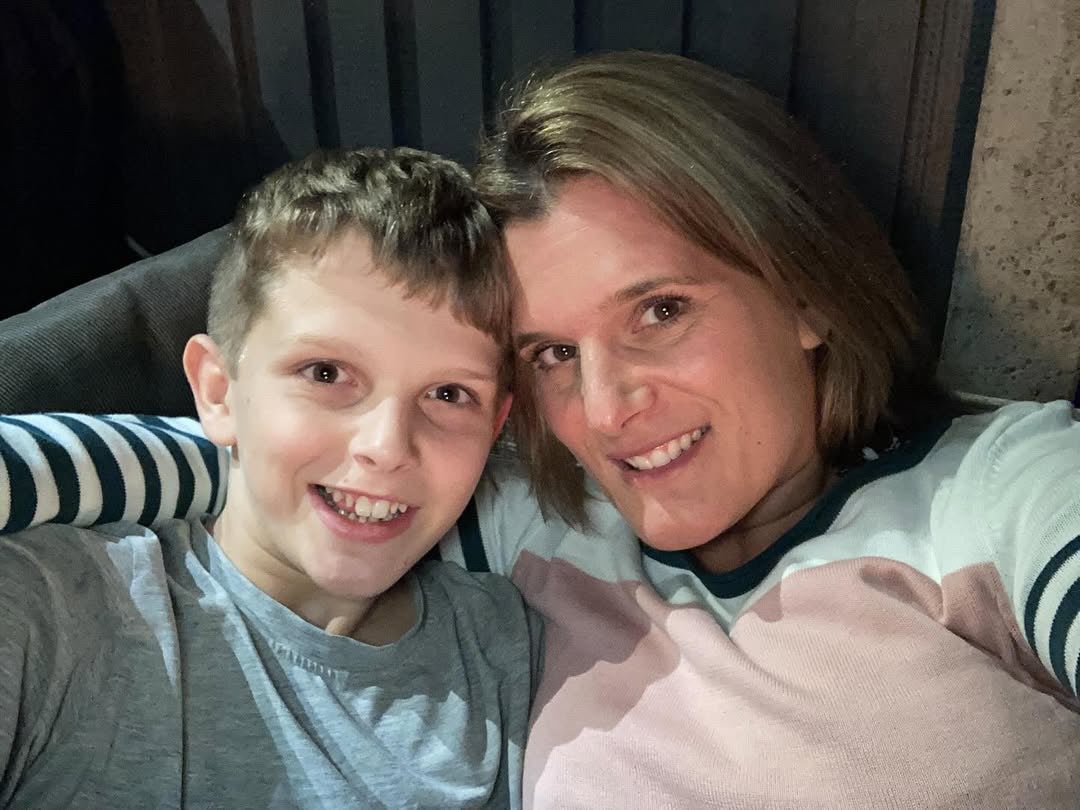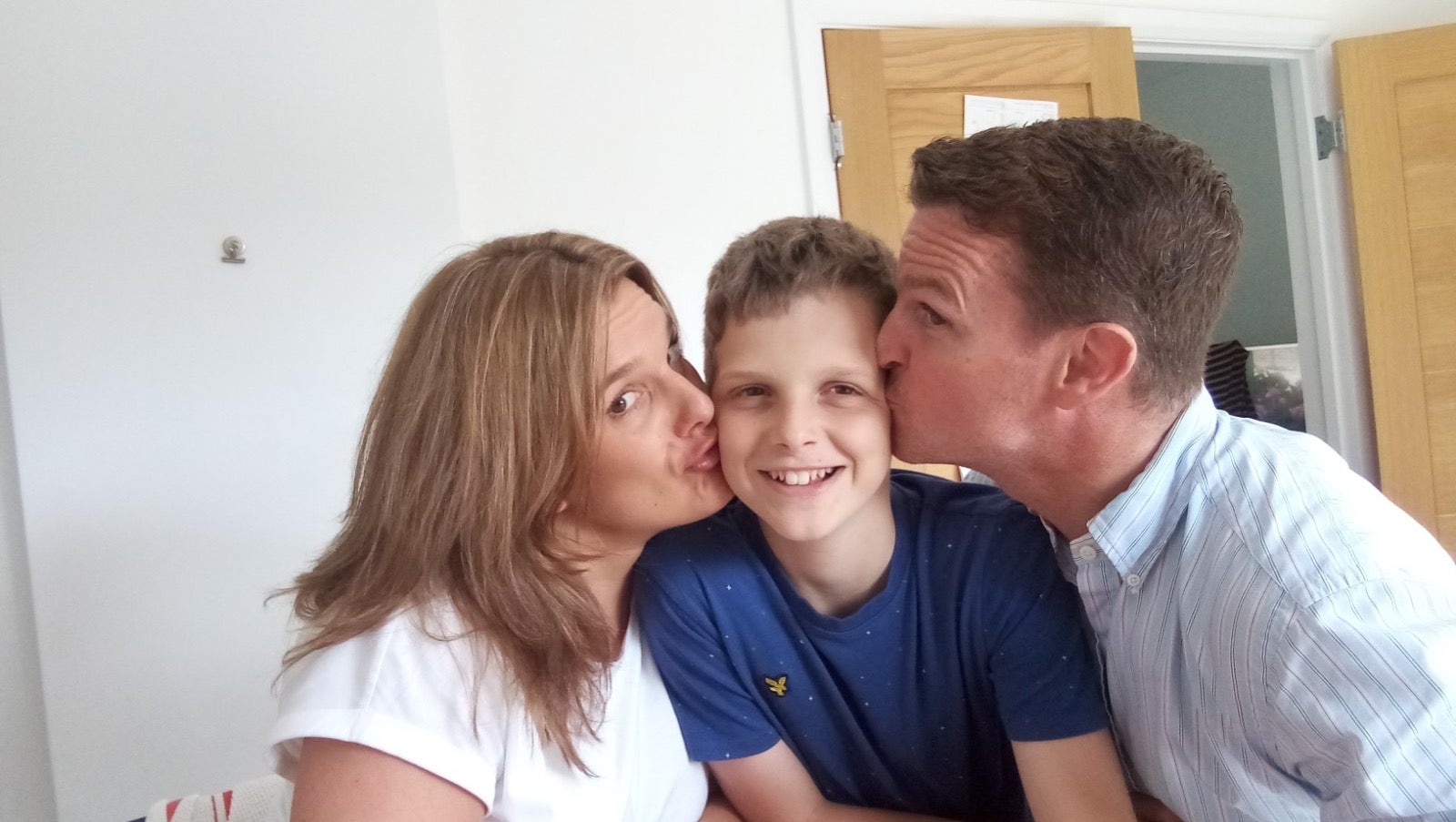A grieving mother whose teenage son died by suicide is urging social media companies to release children’s data to bereaved parents.
Ellen Roome, 48, lost her 14-year-old son, Jools Sweeney, three years ago and says she may never fully understand his decision. She believes access to his online activity could offer crucial insights.
She has called for a change in the law, which MPs could agree to on Wednesday, so that tech giants must hand over children’s data to parents if their child has died.
“If they’ve still got the chance to change it now, I want the Data (Use and Access) Bill changed so that this is in there and we don’t have to wait years for a new law to go through,” Ms Roome said.

“If we’ve got a chance to change it, we need to do it now, before it’s too late.”
Jools died in April 2022, and Ms Roome believes his death could have been linked to an online challenge gone wrong.
She said if social media companies gave bereaved parents access to their child’s data and a harmful trend had a role to play in their death, parents and coroners could “stop it happening to other children”.
Max Wilkinson, the MP for Cheltenham in Gloucestershire where Jools was from, has proposed an amendment to the Government’s Bill.
It would allow bereaved parents to request their child’s user data from up to 12 months before their date of death, including “all content, communications or metadata generated or associated with the deceased persons online”.
Ms Roome sold the financial services business she had for 18 years to campaign for “Jools’ Law” – a right for parents to access their deceased child’s data without a court order – and wider changes to social media, which she described as “not safe”.
She said digital checks should form part of the post-mortem and inquest process, similar to a toxicology report to look for drugs and alcohol.

Ms Roome said: “There’s so much sextortion, blackmail, bullying online that I just think that has to form part of an inquest these days – and automatically request it, not this ‘well, we might request it, if the police feel like it’.”
She continued: “I know how (Jools) died. I walked in to find him.
“I don’t understand why, and all I have been trying to do right from the word ‘go’ is trying to understand why my son’s not alive.
“It then became a bigger picture and Jools’ Law would stop other parents from (being in) my position, but even if Jools’ Law goes through, Jools has had his inquest, so it wouldn’t benefit me at all.
“But it would help other parents, and so I’ve gone off down that route.
“I’m kind of coming to the conclusion that I’m never going to understand, because nobody seems to be able to get me this data.”
Ms Roome said that when she spoke to social media firms in her efforts to access her son’s data, she found they feared being fined or, in some cases, they did not respond.
She said Jools had “presented no mental health problems” and described her son as “very bright”, “quick witted” and “very polite”.
She added that he “didn’t really do much wrong – he got detentions for smuggling a football into class, that normal kid behaviour”.
Liberal Democrat culture spokesman Mr Wilkinson said his amendment “comes down to everybody doing the right thing – that means social media companies doing the right thing voluntarily where they are able to do so, and it means politicians and the Government doing the right thing as well”.

He said that “in days gone by, the questions that parents would be asking would be answered by searching bedrooms, looking in cupboards, reading schoolbooks and diaries”.
Mr Wilkinson continued: “But now, many of those answers do lie in, in some cases, social media accounts.
“And this is just about the law keeping up with the way that families live their lives, that young people live their lives, and that society operates.”
The Data (Use and Access) Bill is expected to clear the Commons on Wednesday and move closer to becoming law.
The Government has proposed in the draft legislation a new duty for the watchdog Ofcom to tell tech firms that they should not delete information about a child who has died, but they would not need to supply the data to parents upon request.
The wide-ranging Bill also includes provision for a ban on creating sexually explicit “deepfake” images of a person without their consent.
A spokesperson for the Department for Science, Innovation and Technology said: “No family should have to experience the devastating consequences of losing a child. From summer the Online Safety Act will introduce strong safeguards to protect children from harmful content online, including material encouraging dangerous stunts and challenges.
“In tragic cases where a child’s death is linked to social media, under the Online Safety Act coroners will have the power to demand relevant data from platforms. This material can then be shared with relevant persons where appropriate, such as parents.
“We are also strengthening these powers through new data laws to ensure information can be preserved after a child’s death to facilitate investigations.
“We are committed to helping bereaved families get the answers they need. We will continue to engage with platforms to ensure they are prepared for new laws and to identify any remaining barriers to retaining data in such tragic cases.”
The Samaritans can be contacted anonymously on 116123 or email [email protected]





